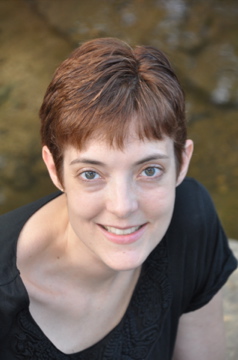 I'm excited for today's post- an indie author spotlight with Kendra C. Highley. It's been too long since I've highlighted an indie author on the blog. When I read Sidelined last month, I thought she would be a great fit for the indie author spotlight. I contacted her and she promptly said yes. Along with Sidelined, Kendra is the author of the Matt Archer series.
I'm excited for today's post- an indie author spotlight with Kendra C. Highley. It's been too long since I've highlighted an indie author on the blog. When I read Sidelined last month, I thought she would be a great fit for the indie author spotlight. I contacted her and she promptly said yes. Along with Sidelined, Kendra is the author of the Matt Archer series.
Tell us a little about yourself. How long have you been writing? What books have you published?
I've been writing since I was in third grade, short stories and such, and I've always loved to, uh, "stretch the truth" to make a story more exciting. Good trait for a writer, right? :) But I didn't get serious about my craft, with an eye toward publication, until about five years ago.
My books include my self-published Matt Archer series, an urban fantasy YA series about a teen who fights monsters, and Sidelined (Entangled Ember), an upper contemporary YA about a female basketball star who gets injured and has to rebuild her life.
What is your favorite part of writing a novel?
When my characters take a detour I wasn't expecting. I'm getting better at plotting, but I'm really more of a pantser, and I love it when I'm writing along and suddenly the story turns in a place I never expected. More often than not, it turns out to be better for the story, too.
What draws you to write young adult fiction?
I love the wonder, the excitement, the "newness" of experiences that teen characters face. I also think some of the most daring, edgy modern books are being written in the YA space.
What are a few of your favorite young adult books and/or series?
Wow, narrowing it down to a few is hard. I'm writing a four-part series on my blog on my favorite YA books right now! I'd have to say Daughter of Smoke and Bone and The Girl of Fire and Thorns series have been my favorites of the last few years.
 I recently read your novel Sidelined. I was drawn to the book as a former athlete and current basketball coach. I think the book deals with issues many teens face as they struggle with addiction, identity, and relationships. Did you have any specific moments in your life that inspired the writing of this book?
I recently read your novel Sidelined. I was drawn to the book as a former athlete and current basketball coach. I think the book deals with issues many teens face as they struggle with addiction, identity, and relationships. Did you have any specific moments in your life that inspired the writing of this book?
One in particular stands out. While I was friends with a couple of varsity women's basketball players (which influenced my decision to make Genna a basketball star), the first seed for this story was planted by a football player when I was a freshman. He was a senior, with three scholarships on the table, and in my church youth group. He was injured late in his last season and lost all his scholarship opportunities. I remember how angry he was, how this life-changing event threw him into despair. But I also got to see, over the course of that year, how he eventually discovered other pursuits and slowly found his balance again. It was inspiring, frankly, and the experience stuck with me.
What are your current writing projects? What is on the horizon for your fans?
I'm working on the fourth Matt Archer book. It's in final edits and will be released in January 2014. The fifth and final book will release summer 2014. I'm also working on a new contemporary YA that has me pretty excited, about a high school reporter.
Finally, I'm always looking for recommendations of great self-published books and indie authors. Do you have any recommendations for self-published fiction books or indie authors to check out?
Wow, two come to mind immediately. They aren't YA, but they have teen characters and are safe for readers 14+. The first is the Emperor's Edge series by Lindsay Buroker. The sixth book in the series, Forged in Blood I, has made it all the way to the finals for Best Fantasy in the 2013 GoodReads Book awards. The second is The Final Formula by Becca Andre. It's an urban fantasy about an alchemist who has amnesia...it's very unique and a ton of fun. I also really enjoyed Red, by Kait Nolan. It's an urban fantasy (YA) based on Red Riding Hood.
Thanks so much to Kendra for her thoughtful responses. I recently picked up the first Matt Archer book and look forward to reading and reviewing it soon.
You can find Kendra at:
